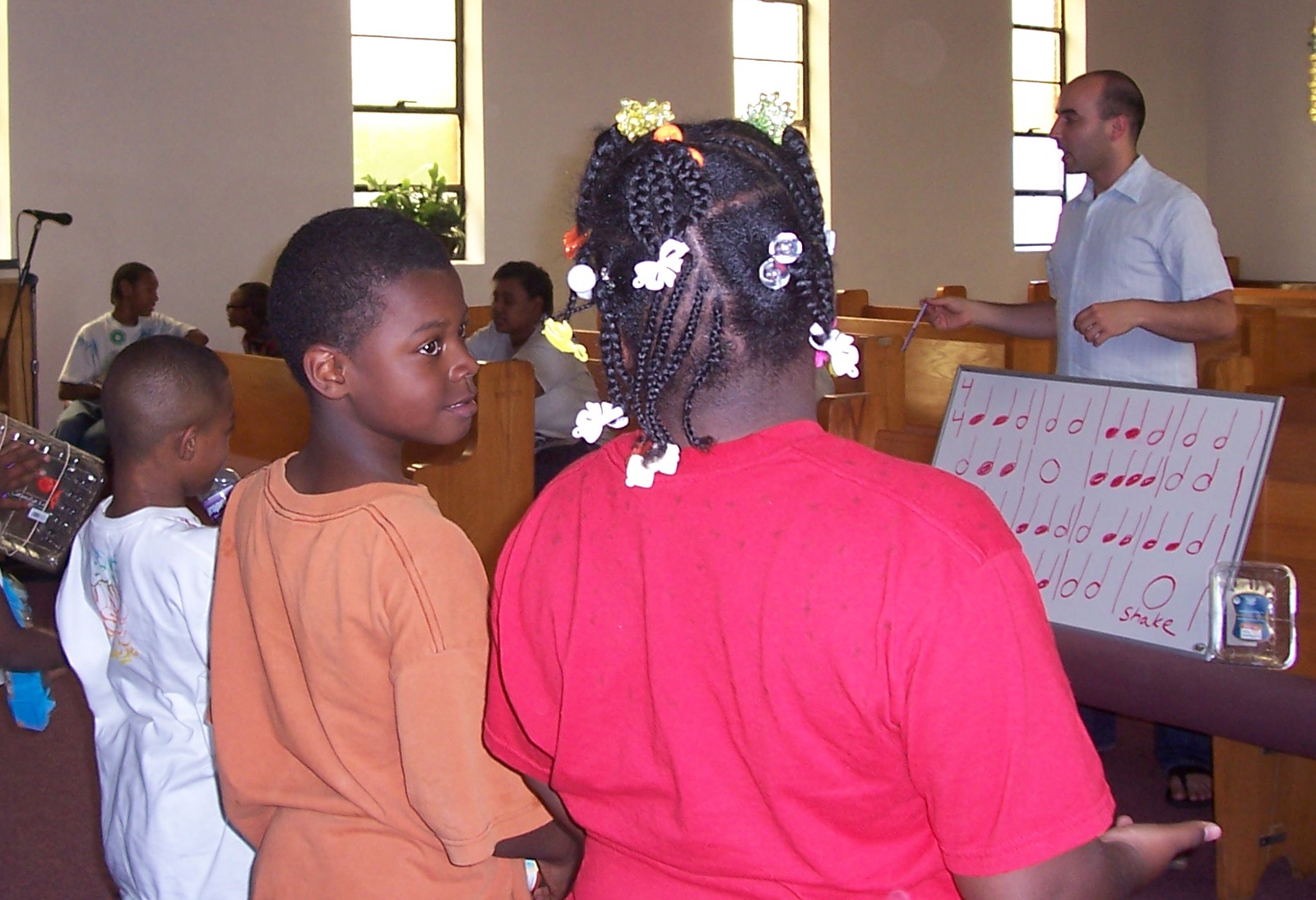Learning from Children and the Children in Us
As the international member of Fifth House (I’ve been living in Rome this year on a fellowship from the American Academy in Rome and won’t be set up in Chicago for another month), I’ve been watching the ensemble’s activities from afar this season, and it’s been a thrill seeing some of our big projects—Harvest, Luna De Cuernos—come to fruition. It’s also been tough missing all the action.
So with all these ideas floating around in my head, what is most on my mind? Learning and education, and the idea that music can play a role in exploring our world and each other.
This season I’ve been thinking about education from a bunch of different angles—as a component of our Fifth House residencies and school visits, to the kind of mentorship and entrepreneurship skills we teach at the fresh inc festival every summer, to some of the cutting-edge innovations in technology and design I had a chance to witness at the 30th Anniversary TED conference this past March. And one of the takeaways from these experiences has been a renewed appreciation for the learning styles of children as distinct from adults.
Adults design education programs for kids and not the other way around, sadly, and one of the most common pitfalls I have noticed in many educational approaches (including my own previous attempts) is that adults so easily make the mistake of treating children like little adults. And perhaps the biggest difference between children and adults when it comes to learning? Children don’t study, work, or practice in order to achieve educational goals—they play.
It’s through playful experimentation and the exploration of joyful absurdities that children learn about the world and sense their role within it—all without the distinct drive to learn or accomplish anything in particular, but through an open engagement with a world that is still fresh and not closed off to inquiry. Here at Fifth House, we’re continually surprised and impressed by the kind of interactions we have with children, and how they are often able to engage creative impulses from which many adults have come to feel disconnected. How can we adults learn from children, and how can we take advantage of these insights in constructing education programs for adults in a way that relates to the freedom and wonder they felt as children? I’m still grappling with this question, but here are some preliminary findings:
- Goal-directed learning is useful for some tasks, but the most radical advances in thinking tend to occur when individuals are free to explore their own goals. We often think of hands-on, unstructured learning such as instrument petting-zoos to be kids’ stuff, when it’s that very lack of pressure to accomplish anything in particular that allows people to reach out and find what music means to them.
- We learn best when we figure things out for ourselves, rather than having everything explained to us; the game is all about figuring out the rules of the game. To that ends, whenever we can plan out a series of events that will lead people to realize certain inevitable insights, it’s infinitely more effective than dispensing this knowledge in isolation.
- Learning is a social experience, and it’s by interacting with others that we learn the most. I’m currently working on a set of interactive musical games for 5HE to play with audiences in which certain rhythmic ideas are clapped and passed around—it’s a way for audiences to make music with us and experience each other not as strangers, but as parts of a musical puzzle that must be solved.
I’m looking forward to building on some of these ideas in some upcoming Fifth House projects as we begin to design a workshop for adults. I hope that the ensemble’s combined experience in teaching the very young can play a role in helping adults get in touch with their childhood impulse to learn by play.
It’s one of the biggest lessons I’ve ever learned from my youngest students: In our learning, we must all become as children again if we are to glimpse that part of experience that remains hidden—or has become dulled—from our adult point of view. The child’s point of view is not judgmental; not easily irritated; not easily bored. It’s a way of being in the world that more of us would do well to access long into our lives.





